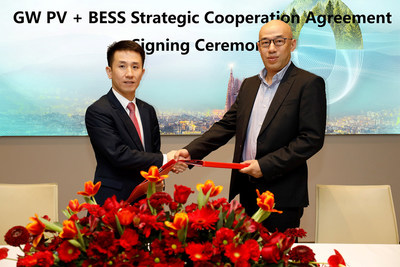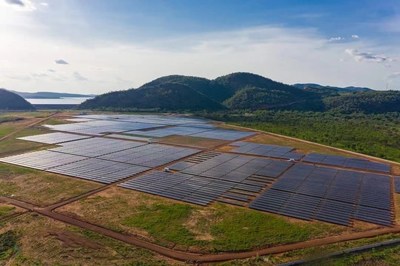The Former Executive Vice President of Strategy at August Jackson Brings Over 10 Years of Industry Experience and Insights to INVNT Higher Ed
New York, March 08, 2022 (GLOBE NEWSWIRE) — INVNT® Higher Ed, the live and experiential higher education storytelling division of INVNT and global umbrella enterprise [INVNT GROUP]®, announces Josh Johns as new Vice President of Creative Strategy.
Johns has spent the last ten years leading branding, communications, and launch strategies for new initiatives and fundraising campaigns with many of the top universities, health care systems, and non-profit institutions across the United States. Throughout his career, Johns has helped institutions launch fundraising campaigns of $500 million to $5 billion for higher education and healthcare institutions.
Prior to joining the INVNT Higher Ed Team, Johns held the role of Chief Creative Officer at Feats Inc., and led branding, communications, and launch strategies for a multitude of prestigious institutions including Duke University, Harvard Business School, INSEAD, the University of California, Irvine, New York University, and M.I.T. Johns has also worked as a creative director in film and advertising, and served in product marketing management roles at internet start-ups, and across the software industry.
Tapping into a powerful stack of omnichannel engagement strategies, creative direction, and deep networks in the higher education realm, Johns will leverage his expertise to expand the reach of INVNT Higher Ed.
“Among the most impressive of Josh’s talents is his creativity and commitment to challenging the way colleges and universities engage with their audiences across all platforms. His thought leadership and deep industry knowledge align perfectly with INVNT Higher Ed’s position as the go-to partner for the most forward-thinking schools,” said Sarah Winkler, Senior Vice President of INVNT Higher Ed.
INVNT Higher Ed is dedicated to providing universities and colleges with strategically and creatively led physical and virtual experiences that challenge convention, while engaging and uniting communities. The division – part of the global live brand story telling agency INVNT – is led by industry veterans Sarah Winkler, Senior Vice President, and JoAnn Peroutka, Vice President. They each bring more than 25 years’ experience to the agency. Over the course of their careers, they have successfully designed and delivered higher education events including campaign launches, regional tours, centennial and sesquicentennial celebrations, and presidential transitions for internationally renowned institutions.
“We first introduced our INVNT Higher Ed offering at a time when the world was experiencing a seismic shift in how we connected to one another. Globally, we saw our universities, colleges, and other institutions grappling with world concerns – many of which continue to evolve. The expansion of the INVNT Higher Ed division is a testament to the transformative power of storytelling and community building. We are proud of the deep partnerships cultivating alongside the global ‘challenge everything’ brands and institutions that put their trust in us,” said Kristina McCoobery, CEO of INVNT and COO of [INVNT GROUP].
As Vice President of Creative Strategy, Johns will articulate INVNT Higher Ed’s vision through strategic engagement-driven campaigns, powered by INVNT’s ‘Challenge Everything’ mantra, to deliver compelling, innovative, and authentic brand storytelling.
“Higher Ed is going through a period of tremendous change, and there’s a lot of opportunity for institutions to rethink and reimagine how they’re telling their stories. I’m excited to be able to leverage the expertise and creativity across the INVNT Group to explore new models for engagement and break new ground in how universities use innovation and technology to reach their most important audiences,” said Josh Johns.
To learn more about the INVNT Higher Ed team and their mission to create innovative strategies and live events for higher education, please visit our website.
###########
About INVNT® Higher Ed
A division of award-winning global live brand storytelling agency, INVNT™, INVNT Higher Ed specializes in providing colleges and universities with strategically and creatively led physical and virtual experiences that challenge convention and unite and excite audiences. Led by Senior Vice-President, Sarah Winkler, JoAnn Peroutka, Vice-President, the division draws on INVNT’s award-winning challenger positioning and approach and their combined experience in higher ed to curate tailored solutions that communicate institutions’ mission and purpose and engage and mobilize entire communities. Visit www.invnt.com/highered for more.
About INVNT
Founded in 2008 by Scott Cullather and Kristina McCoobery, INVNT uses the craft of live brand storytelling to Challenge Everything, producing live experiences that excite and unite physical and virtual audiences, globally. The company’s ‘challenge everything’ positioning statement helps clients including General Motors, Microsoft, Merck, PepsiCo., and Samsung share their stories with every audience that matters. Part of [INVNT GROUP], THE GLOBAL BRANDSTORY PROJECT™, INVNT’s offices are strategically located in New York – where its INVNT Higher Ed division is also based – London, Sydney, Detroit, San Francisco, Washington D.C., Stockholm, and Singapore. Visit www.invnt.com for more.
About [INVNT GROUP]
[INVNT GROUP] was established in 2020, as an evolution of the founding global live brand storytelling agency INVNT in 2008, with a vision to provide consistent, meaningful, well-articulated BrandStory across all platforms. Headed by President and CEO, Scott Cullather, [INVNT GROUP], THE GLOBAL BRANDSTORY PROJECT™ represents a growing portfolio of complementary disciplines designed to help forward-thinking organizations everywhere, impact the audiences that matter, anywhere. The GROUP consists of modern brand strategy firm, Folk Hero; creative-led culture consultancy, Meaning; branded content studio and content marketing agency HEVĒ, INVNT Higher Ed; events for colleges and universities, and the original live brand storytelling agency, INVNT. Visit www.invntgroup.com for more.
Attachment
Jhonathan Mendez de Leon INVNT GROUP 3478192089 jmendezdeleon@invnt.com

 Wu Guangwen (PDG – Meinergy), Zhou Wei (directeur général – Bureau de représentation de Huawei au Ghana), et Fang Liangzhou (vice-président et directeur du marketing – Huawei Digital Power), ont assisté à la cérémonie de signature.
Wu Guangwen (PDG – Meinergy), Zhou Wei (directeur général – Bureau de représentation de Huawei au Ghana), et Fang Liangzhou (vice-président et directeur du marketing – Huawei Digital Power), ont assisté à la cérémonie de signature. Meinergy est au Ghana depuis de nombreuses années, et ses activités couvrent les secteurs de l’exploitation minière, de l’énergie électrique et du photovoltaïque. Dans le contexte de la transformation du mix énergétique mondial, Meinergy a développé énergiquement ses activités dans le domaine des énergies renouvelables au Ghana et dans d’autres pays d’Afrique pour fournir une énergie verte stable aux communautés locales et combler le fossé lié à l’électricité.
Meinergy est au Ghana depuis de nombreuses années, et ses activités couvrent les secteurs de l’exploitation minière, de l’énergie électrique et du photovoltaïque. Dans le contexte de la transformation du mix énergétique mondial, Meinergy a développé énergiquement ses activités dans le domaine des énergies renouvelables au Ghana et dans d’autres pays d’Afrique pour fournir une énergie verte stable aux communautés locales et combler le fossé lié à l’électricité.